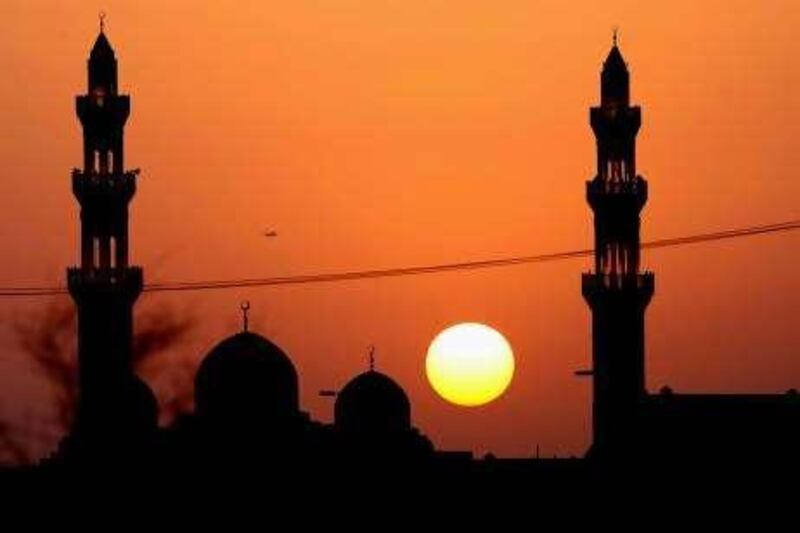This Ramadan will be the longest and hottest in 25 years, and doctors say those fasting must be extra careful during the holy month to avoid dehydration. Hasan al Hariri, the head of the Dubai Astronomy Group and a member of the Islamic Crescents' Observation Project, a multinational organisation that performs official astronomical measurements for the Islamic lunar calendar, said 2010 so far has been the hottest in the history of climate records.
"This year the temperature and changes in climate were unusual. We saw high temperatures where we've never seen it before - for example, it reached 33C in Moscow," he said. He said even hot areas were hotter than usual: the temperature in Medina, Saudi Arabia, hit 63¿C this summer. "The last time the climate was almost as hot as this year was in 1998," he said. Ramadan begins either 10 or 11 days earlier every year, because it is based on the lunar calendar. As the beginning of Ramadan approaches the summer solstice, June 21, the days get longer, and they grow shorter as Ramadan approaches the winter solstice. Ramadan begins about the same time every 33 years.
That cycle means this holy month will be the longest in a quarter-century. Meanwhile, the high temperatures expected this year range from 45.2C to 49.2C, according to a report by the National Centre for Meteorology and Seismology. The lows will range from 25.5C to 29.1C during the night. "There will be more cases of dehydration due to the heat and the summer sun," said Dr Khaliq Raza Khan, a labourers' doctor at Asannaya Medical Centre in Dubai. He said he received five to six cases a day during fasting hours last Ramadan, and he expects the same this year.
However, he said, most people decide not to break their fast even though some fatwas allow it when fasting causes hardship. "The body adjustment and willpower of the person who is fasting give him the strength to continue his fast" in such cases, the doctor said. He recommended people drink water and eat salt and lemons to avoid dehydration. A recent fatwa from the General Authority of Islamic Affairs & Endowments legalises breaking the fast for those whose job requires effort and hardship, with the condition that they start the day fasting and break it only if necessary.
Hussam Subh, a paramedic in Abu Dhabi, said that for the past two years he had treated about six cases of fainting and dehydration a day in the afternoon hours of Ramadan. hdajani@thenational.ae






